Do Prepaid Electricity Plans Reduce Energy Usage?

Prepaid electricity plans put the power in your hands by offering the ability to pay ahead for the energy you use, plus see how much energy you are actually consuming. When you're able to see how much energy you're using, you can make better choices that stretch every dollar just a little bit further.
For families trying to save money on their utility bills, enrollment in a prepaid electricity plan can be an effective way to reduce their energy usage and therefore bring down their monthly expenditures. These plans operate in the same manner as a prepaid phone, where you purchase your consumption in advance at the beginning of the month, rather than receiving a bill for usage that you’ve already accumulated. Part of the appeal of prepaid electricity is that these plans provide you with the information you need to budget and save money, while ensuring that you will never be surprised by your bill at the end of the month.
Is Prepaid Electricity Cheaper Than a Contract Plan?
The critical factor to consider when deciding what type of utility plan to enroll in is which option will save you the most money. Is prepaid electricity cheaper? It’s complicated. The rate you pay per kWh on a prepaid plan can vary, and may or may not exceed the rate that you would pay on a contract plan.
The real answer as to which type of plan is cheaper depends on your own habits and behavior. Prepaid electricity provides both an incentive and the tools you need to increase your home efficiency and spend less money overall on electricity, regardless of the actual kWh rate.
Advantages of prepaid energy
- No contracts, no deposits and no credit checks
- You're in control of your energy usage
- Pay as you go based on your pay schedule
How to Stretch Your kWh & Make Your Prepaid Energy Last
By allotting yourself a set amount of money at the beginning of the month, you can essentially force yourself into saving money with a prepaid plan. With a pay-as-you-go plan, you'll have online resources and notifications to help you track your usage. By regularly monitoring your consumption, you will know when you need to cut back on energy usage to avoid depleting your account before you’re ready to add more funds.
When it comes to stretching your monthly kWh to make your prepaid electricity last longer, the key is to apply energy-saving habits early and often.
Prepaid Electricity Helps You Budget Your Monthly Electric Bills
Employing these practices when you’re low on electricity funds is not as effective as starting right when you load your account and keeping it up throughout the month. Follow these tips to incorporate saving electricity into your daily routine:
6 Easy Tips for Saving on your Energy Bill
- Unplug appliances and devices when they aren’t in use. Electronics that have a standby mode are constantly drawing small amounts of electricity so you can turn them on at a moment’s notice, and most other electrical equipment also consumes energy when you aren’t using it. The only way to ensure that you are truly using zero electricity is to pull the plug.
- Turn the temperature down on your hot water heater. Most households don’t need water that runs at 140 degrees. Turn the temperature down to 120 degrees to save energy, and if you have an electric water heater, you can even turn it off entirely near the end of the month if you are cutting it close on your prepaid plan.
- Turn the lights off if you aren’t in a room. If you plan to leave a space for more than 15 minutes, it’s wasteful to pay to light a room you aren’t even using. You can uncover more savings through your lighting by replacing old incandescent bulbs with energy-efficient alternatives like LEDs.
- Cut back on your heating and cooling expenditures. Heating and cooling is the primary driver of energy consumption in most homes, so if you can stop treated air from escaping you can make a big dent in your bills. Use plastic and weather stripping to seal drafts in your home anywhere that air is getting in or out. Keep your thermostat turned back as much as you can and stay comfortable with fans and weather-appropriate clothing. During summer, avoid using heat-generating appliances like your oven, stove and dryer to reduce cooling load.
- Use maximum efficiency settings on your appliances. Modern dishwashers, washers, dryers and other large items give you the option to cut down on the amount of electricity consumed per load, in addition to reducing water and gas usage, further lowering your bills. Only run these appliances when you have a full load ready, so you aren’t using them any more than is necessary. Cut down even further by air drying your clothes as much as possible, turning off heated dry on your dishwasher and avoiding major cooking appliances in favor of microwaves or slow cookers.
- Invest in modern, energy-efficient appliances when you can. It’s not always feasible to come up with a large chunk of cash to purchase a new big-ticket item, but if you need to replace something anyway, look for the Energy Star label so you know you are getting one of the most efficient models on the market. The energy savings will help offset the upfront costs in the long run.
 CANADA
CANADA USA
USA
